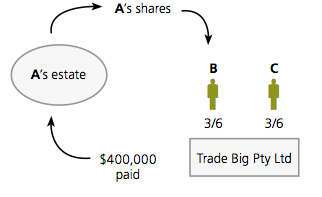There were a number of enquiries following last week’s post, and in summary, the answer to a number of these queries was that before implementing the kind of strategy explored, care should always be taken to make sure that all of the commercial, legal and transaction cost issues are properly considered.
One question that is also worth exploring further is the appropriate quantum of insurance cover in this type of situations.
The advice that we often give however is that for a variety of reasons, we prefer that wherever possible the parties involved look to maximise the level of insurance cover able to be obtained.
Obviously, this approach is subject to specialist advice in these circumstances and the ability for the clients to commercially justify the insurance premium, however some of the practical advantages with this approach that we see include:
- It reduces the need to uplift the quantum of insurance cover as circumstances change.
- It reduces the risk that in the future appropriate levels of cover may not be able to be accessed (due to health reasons).
- It guards against the risk that the underlying assets involved increases more rapidly than insurance protection is able to be updated.
- If structured appropriately, the excess insurance can also be used to facilitate other non-business succession objectives.



